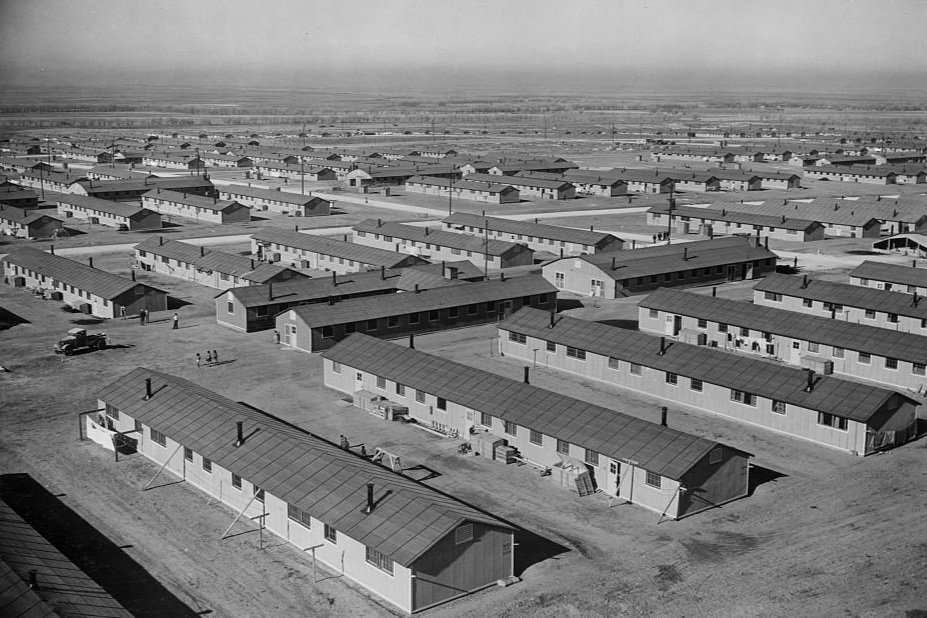
Two Faces is the inspiring story based on the real-life friendship of two friends who live through the dark days of World War II.
“Highly engaging and uplifting. . . [The] story fills a deep gap in the books written about this dark chapter in American history.”
—David de Lorenzo, Director,
Special Collections, University of Oregon
Two Faces is the inspiring story based on the real-life friendship of two friends who live through the dark days of World War II when Japanese Americans were evacuated and held in internment camps because they happened to look like the enemy. Nina and Gordon remain close by writing letters, keeping each other updated on their daily lives—behind barbed wire for Gordon and back in their home town of Merced for Nina. While their experiences are dramatically different during World War II because of racial prejudice, their friendship holds together, in part, through the presence and power of their mothers.
Two Faces addresses matters of racial prejudice, a true and lasting friendship maintained from afar, the presence and strength of mothers, and the healing powers of family.

“[A] highly engaging and uplifting work about a cross-racial friendship at a time of global conflict when such friendships were frowned upon and/or prohibited. [The book] provides substantive and unique details about internment life, much of which has never been told. This engaging story fills a deep gap in the books written about this dark chapter in American history.”
—David de Lorenzo, Director, Special Collections, University of Oregon
“Tragedy. Grief. Gordon Nagai and Nina Wolpe offer a raw, firsthand glimpse into the casualties of war and violence in Two Faces. They show how the pain leaves a permanent scar. We are all victims. Can humanity do better?”
—Robert Watada, Born 1939, Plattville, CO; moved to Ft. Lutton, CO, 1942–1945
“This book is great. … [it] is both heartwarming and serious. I couldn’t put it down!”
—Eliana Koller, sixth grader, Traverse City, Michigan
“As an ex-internee I have selective vivid memories of the camp experience when I was just eight. [The book] brought back so many memories that I could not put it down. … The relationship of Gordon and Nina is thoughtfully written. … All in all, a beautifully written book for any age. Young people will be able to relate to the plight of Nina and Gordon.”
—Yukio Shimomura, Manzanar Internment Camp, 1942–1945
“[A] refreshing perspective on how war divides not only on the battlefield but on the home front. After the bombing at Pearl Harbor, the friendship of two children is threatened by a fence built of fear—every nail hammered home by a world of distrust in which they are caught. Their refusal to acquiesce to the status quo of hate and suspicion serves as a testament to the power of the human spirit. A highly recommended read.”
—Bob Welch, author of Saving My Enemy: How Two WWII Soldiers
Fought Against Each Other and Later Forged a Friendship That Saved Their Lives
“As a third-grade teacher and parent, it is rare to find texts about such sensitive topics told in a way that allows young readers to engage, connect and learn. Two Faces does just that. The photographs and resources in the appendix also provide a wonderful resource too giving young readers a way to connect to the history that unfolded over 80 years ago. I appreciate the vulnerability of Nina’s and Gordon’s writing and the gift this story will be for readers of all ages in the years to come.”
—Christine Gough, third-grade teacher, Letitia Carson Elementary School, Corvallis, Oregon
“As a program manager at the Osher Lifelong Learning Institute, I had the good fortune to hear and learn from Gordon’s presentation about the internment of his family at Camp Amache, one of many he’s made in scores of communities and schools. What strikes me most deeply in this inspiring new book is the power of the human spirit to overcome, reminding us that we humans are more alike than we are different—a lesson that our society needs to hear, now more than ever.”
—Todd Gauthier, Osher Lifelong Learning Institute, Program Manager, University of Oregon
“As an educator I can’t think of a better culturally responsive way to teach students about our forced imprisonment of American citizens and its impact on our society during World War II.”
—Sarah Campbell, sixth-grade teacher, Meadow View Middle School, Eugene, Oregon
“Two Faces is the story of an ugly chapter in American history, told with the charm and clarity of two youngsters who lived through it. Their story will inspire rich conversations among all who have the good fortune of reading their account. This book is an opportunity for young readers to learn from the past, and to prevent history from repeating itself.”
—Sally Krueger, fifth-grade teacher, Edgewood Community Elementary School, Eugene, Oregon
Against the backdrop of one of this nation’s greatest Civil Rights violations emerges a story of love, friendship, patience, patriotism, sacrifice and pure childhood innocence… powerfully written, yet never preachy, and remains wholly authentic throughout to both its young adolescent viewpoint and the misgivings, mischief and misadventures of growing up. . . . absolutely stunning.”
—Olivia Taylor-Young, Osher Lifelong Learning Institute, University of Oregon, creative writing facilitator
“The pages about life in the camp almost shatter as you turn them, yet it is a hopeful memoir. Wolpe’s and Nagai’s deftly recorded account proves there is always hope for another doorway to open. Precious!”
—Bill Sarnoff, World War II Navy radioman, U.S.S. Elizabeth C. Stanton




